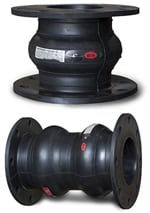|
|||||||
| AkzoNobel to demonstrate new ethylene amines process technology in Sweden
AkzoNobel Specialty Chemicals (Amsterdam, the Netherlands; www.akzonobel.com) has broken ground for a demonstration plant to showcase a new, more sustainable technology platform for producing ethylene amines and their derivatives from ethylene oxide. Located at its Stenungsund site in Sweden, the facility marks the next step towards commercialization of the patented technology. »
|
|||||||
|
|||||||
| BASF increasing global production capacity for expandable polystyrene
BASF SE (Ludwigshafen, Germany; www.basf.com) is increasing its global production capacity for Neopor (expandable polystyrene containing graphite) by a total of 40,000 metric tons per year (m.t./yr). Adjustments in the plants at the two production sites in Ludwigshafen, Germany, and Ulsan, Korea, will take place through the fourth quarter of 2018. »
|
|||||||
|
|||||||
| Avantium begins construction of bio-based MEG demonstration plant
Avantium N.V. (Amsterdam, the Netherlands; www.avantium.com) has started construction of a new demonstration plant that will help advance the production of bio-based mono-ethylene glycol (MEG) made directly from renewable sugars. As MEG is a component for making everyday consumer goods, such as PET and PEF plastics and polyester textiles, the development of an environmentally friendly plant-based alternative has strong potential. »
|
|||||||
| Dow to invest in new Gulf Coast alkoxylation facility
The Dow Chemical Company (Midland, Mich.; www.dow.com) announced its plan to invest in an alkoxylation facility on the U.S. Gulf Coast. Upon completion, this new facility will support global growth in Dow’s core end-markets related to infrastructure and home and personal care, as well as additional end-markets. »
|
|||||||
| Siluria Technologies inks deal with Saudi Aramco
Saudi Aramco Technologies Company (www.saudiaramco.com) and Siluria Technologies (San Francisco, Calif.; www.siluria.com) executed a multi-plant technology license for the integration of Siluria’s proprietary technology (natural gas to olefins) with Saudi Aramco’s high-olefins cracking process technology. »
|
|||||||
| Phillips 66 expands fractionation capacity in Sweeny, Texas
Phillips 66 (Houston; www.phillips66.com) announced that it is proceeding with an expansion of the company’s Sweeny Hub. This project includes the construction of two 150,000 barrel-per-day (bbl/d) natural gas liquids (NGL) fractionators in Old Ocean, Texas, additional NGL storage capacity, and associated pipeline infrastructure. The project is expected to cost up to $1.5 billion. »
|
|||||||
from our bookstore
|
|||||||
|
|||||||
|
|||||||
© 2018 Access Intelligence, LLC. All rights reserved. |






